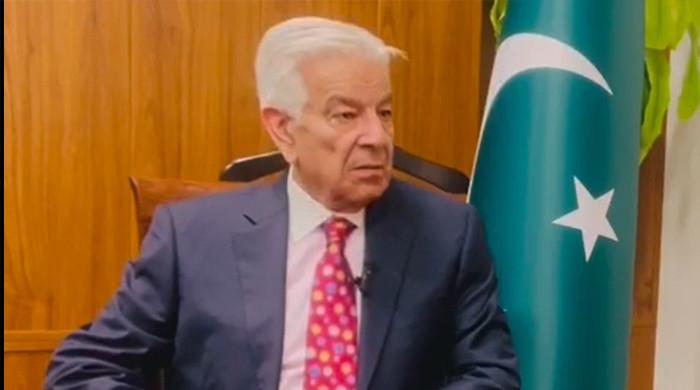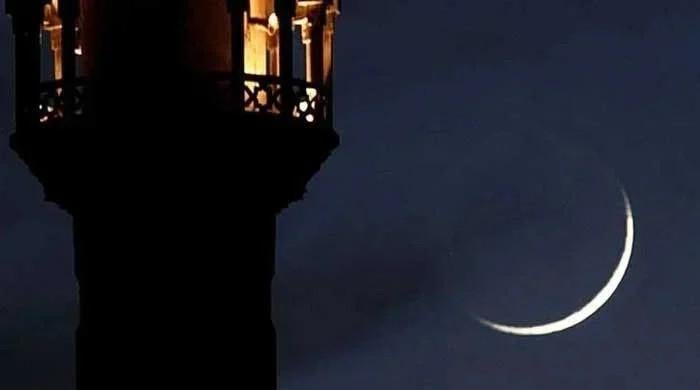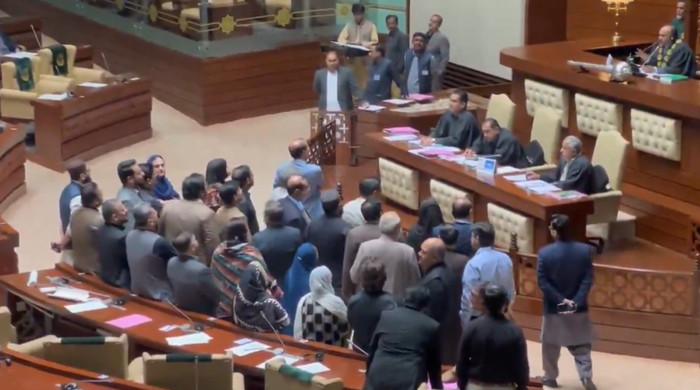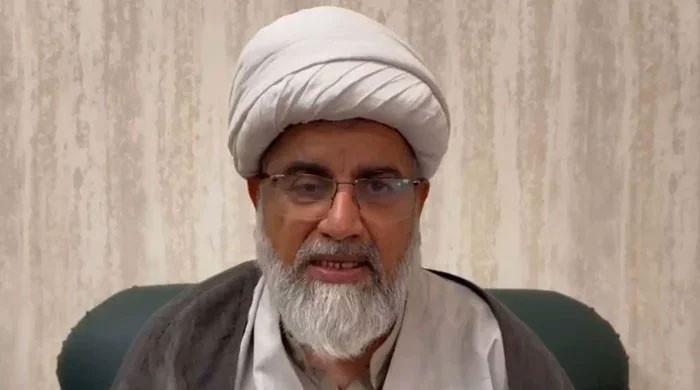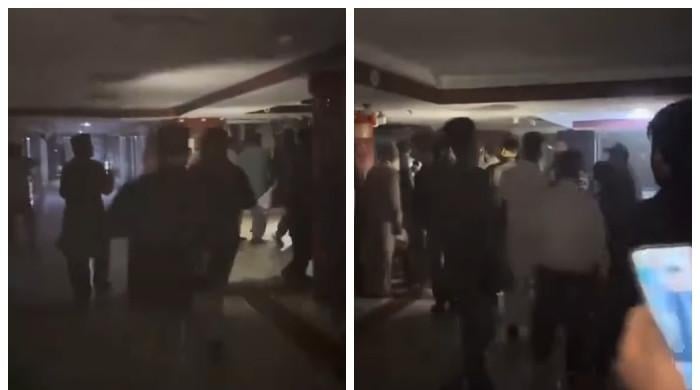IHC judges' letter: CJP Isa-led larger bench to hear suo motu case on April 30
Supreme Court bench reconstituted after Justice Yahya Afridi recused himself from hearing the case
April 25, 2024
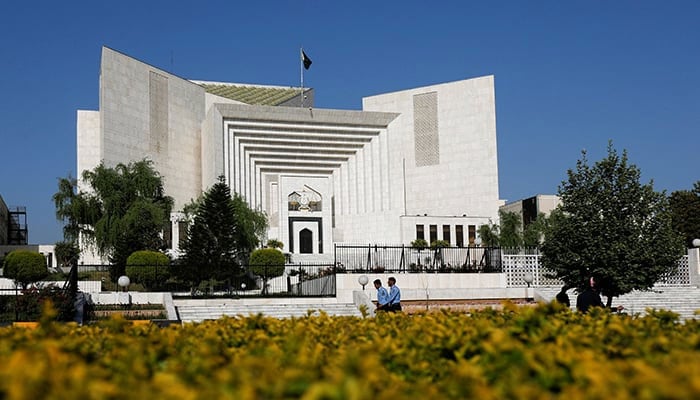
- CJP Isa-led larger bench to take up the matter on April 30.
- Supreme Court took suo motu notice of IHC judges' letter.
- IHC judges accused spy agencies of interfering in judicial affairs.
ISLAMABAD: The Supreme Court on Thursday constituted a new bench led by Chief Justice of Pakistan (CJP) Qazi Faez Isa to hear suo motu case on the Islamabad High Court (IHC) judges' letter accusing spy agencies of meddling in judicial affairs.
The apex court bench was reconstituted after Justice Yahya Afridi recused himself from hearing the case earlier this month.
According to a cause list issued by the apex court, a six-member bench led by CJP Isa and comprising Justice Syed Mansoor Ali Shah, Justice Jamal Khan Mandokhel, Justice Athar Minallah, Justice Musarrat Hilali and Justice Naeem Akhtar Afghan will now hear the matter the on April 30 (Tuesday).
On March 25, six judges of IHC had demanded CJP Isa to convene the judicial convention to consider the matter of alleged interference of intelligence operatives in the judicial functions or "intimidation" of judges in a manner that undermined the independence of the judiciary.
The six IHC judges — Justice Mohsin Akhtar Kayani, Justice Babar Sattar, Justice Arbab Muhammad Tahir, Justice Tariq Mahmood Jehangiri, Justice Sardar Ejaz Ishaq Khan and Justice Saman Rifat Imtiaz — had written a letter to the chief justice, who is also chairman of the Supreme Judicial Council (SJC).
Seeking guidance from the council on “interference” of the spy agencies in courts’ affairs, the judges wrote: "We are writing to seek guidance from the Supreme Judicial Council (SJC) with regard to the duty of a judge to report and respond to actions on part of members of the executive, including operatives of intelligence agencies, that seek to interfere with discharge of his/her official functions and qualify as intimidation, as well as the duty to report any such actions that come to his/her attention in relation to colleagues and/or members of the courts that the High Court supervises."
Subsequently, the Supreme Court on April 1 took suo motu notice of the IHC judges' letter and formed a seven-member bench led by CJP Isa to hear the matter.
Following the maiden hearing of the case on April 3, Justice Yahya Aridi, who was part of the larger bench, recused himself from hearing the suo motu case, taken up under Article 184(3) of the Constitution.
In his note, accompanying the written order issued after the first hearing of the case, the SC judge stated that the matters raised in the IHC judges' letter should be viewed in accordance with the Supreme Judicial Council's code of conduct.
Justice Afridi further said: "High Courts are independent courts under the Constitution. Article 184/3 should not be invoked on independence of high courts."
'No interference complaint since becoming CJP'
Earlier today, CJP Isa said he did not receive any note of grievance from any high court judge claiming the meddling of other intuitions in the judicial process.
“Since I have been chief justice [of Supreme Court of Pakistan], I have not received a single complaint from any high court judge that there has been any interference in their work,” Justice Isa said while speaking at Sindh High Court Bar Association (SHCBA).
“Now, if there has been any interference in their work it has not been reported to me and all the incidents that were mentioned were before my watch… before I took the oath as the CJP.
“So, this is a thing to bear in mind that interference is not acceptable but at the same time nothing has been reported to me during … my watch.”




